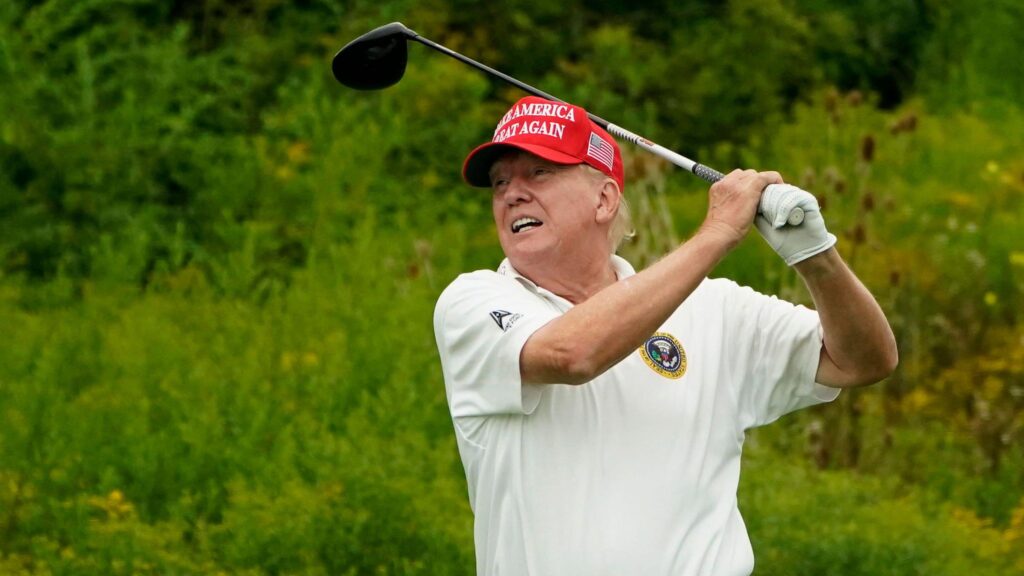Countries around the world are braced for Donald Trump’s so-called “Liberation Day in America!!!” next week.
The US president’s deadline to impose reciprocal tariffs on trading partners will come just days after he hit foreign carmakers with 25% import taxes.
Vietnam could be particularly vulnerable to Trump’s latest salvo of levies. It has a large trade deficit with the US and has been a beneficiary of firms moving factories out of China to avoid measures announced during his first term in office.
While some countries have hit back at Washington, Vietnam’s Prime Minister, Pham Minh Chinh, has suggested that he may take a more diplomatic approach.
Speaking in January, he said he was willing to visit Trump’s Mar-a-Lago home in Florida and “golf all day long” if it benefits his country, drawing laughter in the room.
And that idea may not be too far-fetched. The Trump Organization is planning to invest billions of dollars in golf courses, hotels and real estate in Vietnam, according to the Reuters news agency.
The first project will reportedly be a residential complex with three 18-hole golf courses, which will break ground in May.
The BBC has contacted the company and its Vietnamese partner for comment.
But could golf diplomacy really work?
‘Bamboo’ economics
Trump has previously said Vietnam was “worse than China” and “almost the single worst abuser of anybody”.
But he has not yet specifically targeted Vietnam with tariffs, even though it has the third largest trade deficit with the US, after China and Mexico.
Analysts say Vietnam is doing well at engaging with Washington – but its efforts may still not be enough to avoid most of Trump’s tariff plans.
“The Vietnam PM seems to be taking a page from the book of [former Japanese PM] Shinzo Abe, who built a close personal relationship with Trump over their shared love of golf,” said Stephen Olson, a former US trade negotiator.
“I would not however expect any special treatment of Vietnam from a policy point of view. Personal relationships are important to Trump, but in this case, I believe his desire to appear tough on trade will win out.”
Vietnam has said it doesn’t plan to “restrict trade” with the US, although it currently taxes some imports from there.
The government said this week that it will allow SpaceX, which is owned by close Trump ally Elon Musk, to operate its Starlink satellite internet service in the country on a trial basis.
Some analysts see this as one of the measures Vietnam has taken to avoid being hit with US tariffs.
Hanoi also said it will lower tariffs on several US imports, including energy and cars, a move aimed at “improving trade balances”.
It came less than two weeks after Vietnamese and US companies signed more than $4bn (£5.4bn) in deals, in areas including oil and gas exploration.
Steve Norris from the consultancy Control Risks said “Vietnam is being careful to avoid any moves which would signal any non-cooperation on trade issues”.
This strategy is in line with its foreign policy approach – known as “bamboo diplomacy”. Like shoots of plants that sway with the wind, Vietnam hopes to be adaptable to foreign pressures.
“If the US were to increase pressure on Vietnam, the government might respond with offers to facilitate investments in the hospitality and casino industries, undertake advanced machinery purchases, and – capturing the moment – consider access to Vietnam’s rare earth minerals,” Mr Norris said.

